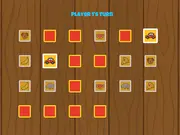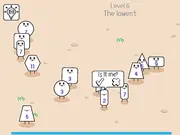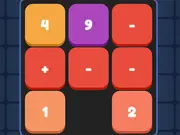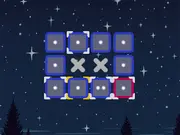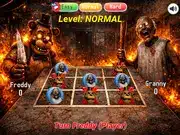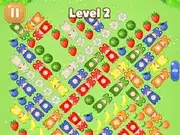Word Search
About Word Search
In a world saturated with flashing screens and hyper-complex narratives, sometimes the purest joys come from the simplest pleasures. Picture this: the quiet hum of your mind as you scan a grid, the satisfying click in your brain as a hidden word leaps out at you, the subtle thrill of competition as you race against a friend or the clock. The Word Search game, in its elegant straightforwardness, offers an escape from the digital noise, a focused burst of mental energy that’s as rewarding as it is relaxing. This deceptively simple Popular game offers an experience so fundamentally engaging that it continues to captivate players of all ages, across generations. But what exactly is it about the Word Search that makes it so universally beloved? And more importantly, how can you elevate your own game to become a true master of the grid?
About Word Search
At its heart, the Word Search game is an exercise in pattern recognition and vocabulary. Forget complex storylines or intricate control schemes – the core of the game lies in locating a list of words artfully concealed within a grid of seemingly random letters. It’s a deceptively simple premise, a challenge that relies on your visual acuity and language skills. The thrill lies not in defeating an opponent or conquering a level, but in the satisfaction of discovery, the “aha!” moment when a camouflaged word snaps into focus. Every puzzle presents a unique arrangement, a new opportunity to hone your searching prowess. The grids, usually square or rectangular, can vary dramatically in size and complexity, presenting a sliding scale of difficulty suitable for casual players and seasoned veterans alike. The themes behind the word lists add another layer of engagement. From animals and food to historical figures and scientific concepts, the subject matter can be as diverse as your own interests. This is more than just a game; it is a mental workout, a vocabulary booster, and a stress reliever all rolled into one neat package.
But don’t be fooled by its apparent simplicity. There’s a surprising depth to the Word Search game, a strategic element that emerges as you tackle increasingly challenging grids. You’ll quickly learn to scan diagonally, backwards, and even upwards, adapting your visual search patterns to cover all possible orientations. The density of the letter grid, the length of the hidden words, and the presence of decoys (letter combinations that mimic real words) all contribute to the overall difficulty. What begins as a leisurely pastime can quickly transform into an intense, focused challenge, demanding concentration and strategic thinking. The more you play Word Search, the more refined your search techniques become, the faster you identify potential matches, and the more adept you are at filtering out the red herrings. It’s a subtle but profound process of skill development that adds a layer of depth to this seemingly basic puzzle.
How to Play Word Search
Let’s say you’re diving into a digital Word Search online. The screen presents a square grid filled with letters, and a list of words nestled beside it. The objective is simple: find all the words from the list hidden within the grid. But how do you actually *do* it? First, visually scan the grid for the first letter of one of the words on your list. Don’t fixate on one word – let your eyes drift and see what jumps out. Once you spot a potential starting letter, hover your cursor over that letter and *click and hold* the left mouse button. While holding the button down, drag the cursor in a straight line (horizontally, vertically, or diagonally) to highlight the subsequent letters of the word. If you’ve correctly highlighted the entire word, the game will automatically mark it as found, often highlighting it in a different color or striking it off the list.
Now, here’s where it gets interesting. The direction of the drag is crucial! You must drag in the correct direction to spell the word forwards *or backwards*. For example, if you’re looking for the word “APPLE” and you find an “A”, you need to drag either to the right, down, diagonally down-right, or diagonally up-right *if* those directions lead to the rest of the letters in the correct sequence. Experiment with different starting letters and directions until you successfully highlight the word. The Word Search game interface typically provides visual feedback – if you’re dragging in the wrong direction, the highlighting will stop. This feedback helps you quickly adjust your approach.
Also, pay close attention to potential overlaps. Some letters may be part of multiple words, so don’t assume that once you’ve used a letter, it’s out of play. Keep a keen eye out for letters that could potentially serve double duty. Furthermore, many digital versions include a timer, adding a layer of urgency to the challenge. Focus on accuracy first, then gradually increase your speed as you become more proficient. Remember, patience and persistence are key. Don’t be discouraged if you struggle to find a word immediately – sometimes, taking a break and returning with a fresh perspective can make all the difference. Mastering the Word Search game involves a combination of visual acuity, strategic thinking, and a healthy dose of perseverance.
What Makes Word Search Special
The enduring appeal of the Word Search game isn’t just about its simplicity; it’s about the unique blend of features that create a deeply satisfying and engaging experience. From its accessibility to its mental benefits, the Word Search offers something for everyone. Let’s delve into the key elements that make it truly special:
- Instant Gratification: The immediate visual feedback of finding a word provides a quick dopamine hit, encouraging continued play.
- Mental Workout: Actively engages your brain, improving concentration, focus, and pattern recognition skills.
- Vocabulary Enhancement: Exposure to a diverse range of words expands your linguistic knowledge and understanding.
- Stress Relief: The repetitive nature of the search process can be incredibly calming and meditative, providing a welcome escape from daily anxieties.
- Accessibility: Available in countless formats, from physical books to digital apps, making it easy to play Word Search anytime, anywhere.
- Customizable Difficulty: From small, easy grids to large, challenging puzzles, the difficulty can be tailored to your skill level and preferences.
- Thematic Variety: Word lists covering a wide range of topics ensure there’s always a puzzle that aligns with your interests.
- Social Element: Many digital versions allow you to compete against friends or other players, adding a competitive edge to the experience.
- Offline Enjoyment: Unlike many modern games, Word Search game puzzles can be enjoyed without an internet connection.
- Cognitive Flexibility: Encourages you to adapt your search strategies and think outside the box to find hidden words.
Ultimately, the magic of the Word Search lies in its ability to combine mental stimulation with pure, unadulterated fun. It’s a game that transcends age and background, offering a universally appealing challenge that’s both rewarding and relaxing.
Mastering Word Search
Transforming from a casual player to a true Word Search aficionado requires more than just a good eye. It demands a strategic approach, a honed technique, and a willingness to think outside the box. To truly master the grid, consider these advanced strategies:
- Edge Scanning: Focus your initial search on the edges of the grid, as words are often placed along the perimeter to maximize space.
- Vowel Hunting: Vowels are less frequent than consonants, so scanning for common vowel combinations (like “EA” or “IO”) can quickly narrow down your search.
- Length Matters: Prioritize searching for the longest words first. Finding these longer words can eliminate more letters and make it easier to spot the shorter ones.
- Reverse Psychology: Consciously look for words *backwards* from time to time. Your brain naturally focuses on forward-reading sequences, so flipping your perspective can reveal hidden words.
- Ignore Distractions: Train yourself to ignore random letter combinations that aren’t part of your target words. Focus on the specific sequences you’re looking for.
- Pattern Recognition: Develop your ability to recognize common letter patterns and digraphs (two-letter combinations) that often appear in English words.
- Take Breaks: If you’re struggling to find a particular word, step away from the puzzle for a few minutes. A fresh perspective can often reveal what you were missing.
- Mental Rehearsal: Before you even start searching, mentally rehearse the words on the list. Visualize their spellings and common letter combinations.
- Strategic Highlighting: Avoid haphazardly highlighting letters. Only highlight letters that are part of a potential word, and erase any incorrect highlights immediately.
Beyond these specific tips, the key to mastering the Word Search game is consistent practice. The more you play, the more refined your search techniques become, the faster you identify potential matches, and the more adept you are at filtering out distractions. Embrace the challenge, experiment with different strategies, and enjoy the process of continuous improvement.
Different Ways to Play
While the fundamental premise of the Word Search game remains constant, variations in game modes and difficulty levels add layers of replay value and cater to different player preferences. Many digital versions offer adjustable grid sizes, allowing you to choose between smaller, easier puzzles and larger, more challenging ones. Some also include difficulty settings that control the complexity of the word list, the density of the letter grid, and the presence of decoy words. Timed modes introduce an element of urgency, challenging you to find all the words within a specific time limit, fostering a sense of competition and excitement.
Beyond these basic variations, some versions incorporate unique twists to the traditional formula. Some Word Search online offerings feature themed puzzles with interconnected word lists, where finding one word provides a clue to the location of another. Others introduce bonus challenges, such as finding a hidden phrase or solving a mini-riddle related to the puzzle’s theme. These variations inject new life into the classic game, ensuring that the experience remains fresh and engaging, even for seasoned players. The flexibility and adaptability of the Word Search game are a testament to its enduring appeal.
What Makes This Game Addictive
The seemingly simple Word Search game possesses a surprisingly addictive quality, drawing players back time and again. It’s not just the challenge itself, but a clever cocktail of psychological rewards that keeps us hooked. The act of finding a hidden word triggers a small release of dopamine in the brain, creating a sense of accomplishment and satisfaction. This positive reinforcement encourages us to continue searching, seeking out that next “aha!” moment.
Beyond the neurological rewards, the Word Search also taps into our innate desire for completion and order. The process of systematically finding and marking off each word on the list provides a sense of control and closure. One player mentioned, “It’s like tidying up my mind. Each word I find is like clearing clutter, leaving me feeling more focused and relaxed.” This combination of cognitive stimulation and emotional satisfaction is what makes the Word Search game so incredibly addictive.
Is Word Search Right For You?
The Word Search game holds broad appeal, yet certain personality types and skill sets may find it particularly enjoyable. Individuals who possess a strong attention to detail, a love of language, and a knack for pattern recognition are likely to excel at this puzzle. Those who appreciate quiet, focused activities that provide a sense of accomplishment will also find it incredibly rewarding. Due to its adjustable difficulty, the Word Search can be tailored to suit players of all ages and skill levels, from young children learning to read to adults seeking a mental workout.
If you enjoy games like Sudoku or crosswords, which require focused concentration and strategic thinking, you’ll likely find the Word Search equally engaging. The learning curve is gentle, making it accessible to beginners, while the increasing difficulty levels provide a challenge for experienced puzzle solvers. Whether you’re looking for a relaxing pastime, a mental exercise, or a way to improve your vocabulary, the Word Search game offers something for everyone.
Why You Should Play Word Search Today
In a world of constant distractions and demanding schedules, the Word Search game offers a much-needed moment of calm and focus. Its simplicity is its strength, providing an accessible and rewarding challenge that can be enjoyed anytime, anywhere. Whether you’re seeking a mental workout, a stress reliever, or simply a fun way to pass the time, the Word Search delivers on all fronts.
So, why wait? Embrace the challenge, sharpen your mind, and experience the joy of the Word Search for yourself. Download a Word Search online app, pick up a puzzle book, or even create your own custom puzzles. Dive into the grid and discover the hidden words that await you. Unleash your inner word sleuth and play Word Search today!
